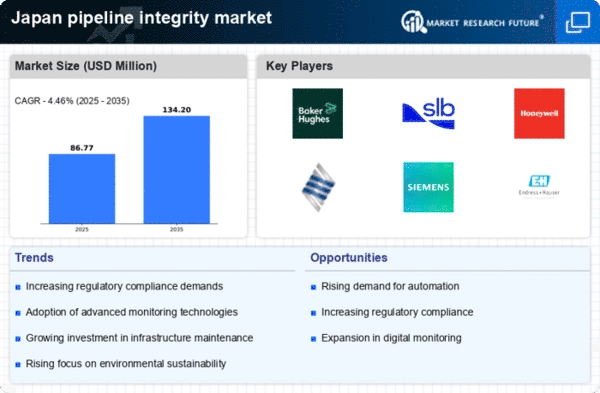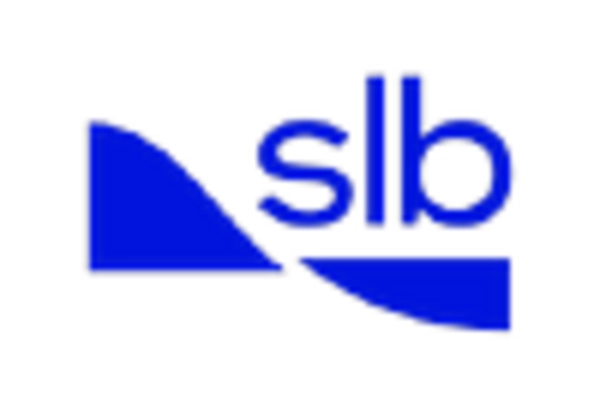Rising Demand for Energy Security
Japan's energy security concerns are significantly influencing the pipeline integrity market. Following the Fukushima disaster, the country has been striving to diversify its energy sources and enhance the resilience of its energy infrastructure. The government aims to increase the share of renewable energy to 36-38% by 2030, which necessitates robust pipeline systems for transporting energy resources. This shift is prompting investments in pipeline integrity solutions to ensure the safe and efficient transport of energy. The pipeline integrity market is expected to benefit from this heightened focus on energy security, as companies prioritize the integrity of their pipelines to prevent leaks and ensure uninterrupted energy supply.
Increasing Infrastructure Investment
The pipeline integrity market in Japan is experiencing a surge in infrastructure investment, driven by the need to modernize aging pipeline systems. The Japanese government has allocated substantial funds, estimated at ¥1 trillion, for infrastructure upgrades over the next five years. This investment is crucial for enhancing the safety and reliability of pipeline operations. As a result, companies are increasingly adopting advanced technologies to monitor and maintain pipeline integrity. The focus on infrastructure development not only addresses safety concerns but also supports economic growth. Consequently, this trend is likely to propel the pipeline integrity market forward, as stakeholders seek to ensure compliance with stringent safety regulations and improve operational efficiency.
Growing Public Awareness and Advocacy
Public awareness regarding environmental issues and pipeline safety is on the rise in Japan, influencing the pipeline integrity market. Advocacy groups are increasingly vocal about the need for stringent safety measures and environmental protection. This heightened awareness is prompting companies to prioritize pipeline integrity to maintain public trust and avoid backlash. As a result, organizations are investing in comprehensive integrity management programs that not only comply with regulations but also address community concerns. This trend indicates a shift towards greater corporate responsibility within the pipeline sector, which is likely to drive the demand for integrity solutions. The pipeline integrity market is thus expected to expand as companies respond to public expectations.
Environmental Regulations and Compliance
Japan's stringent environmental regulations are significantly shaping the pipeline integrity market. The government has implemented rigorous standards to minimize environmental impact, particularly concerning pipeline leaks and spills. Compliance with these regulations is essential for companies operating in the sector, as non-compliance can result in hefty fines and reputational damage. As a result, there is a growing emphasis on adopting advanced integrity management systems that ensure adherence to environmental standards. This trend is likely to drive investments in pipeline integrity solutions, as companies seek to mitigate risks and enhance their sustainability practices. The pipeline integrity market is thus positioned to grow in response to these regulatory pressures.
Technological Integration for Enhanced Monitoring
The integration of advanced technologies in the pipeline integrity market is becoming increasingly prevalent in Japan. Companies are adopting smart monitoring systems that utilize IoT and AI to detect anomalies in real-time. This technological shift is expected to enhance the efficiency of pipeline inspections and maintenance, reducing operational costs by up to 20%. Furthermore, the implementation of predictive analytics allows for proactive maintenance strategies, minimizing the risk of pipeline failures. As the industry embraces these innovations, the demand for sophisticated monitoring solutions is likely to grow, driving the pipeline integrity market forward. This trend reflects a broader commitment to improving safety and operational efficiency within the sector.
















